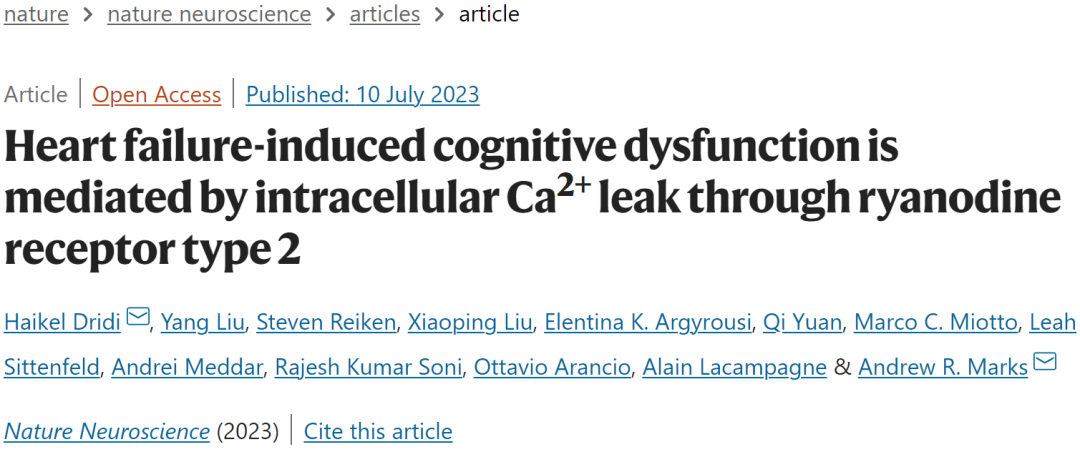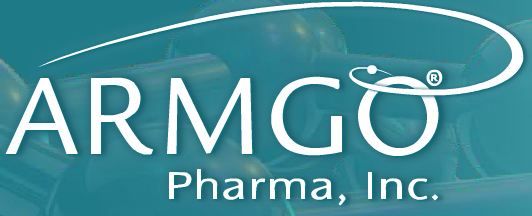预约演示
更新于:2025-09-13
Aladorian
更新于:2025-09-13
概要
基本信息
药物类型 小分子化药 |
别名 Aladorian (USAN/INN)、Aladorian Sodium、ARM-036 + [11] |
靶点 |
作用方式 调节剂 |
作用机制 RyR调节剂(Ryanodine receptors modulators) |
治疗领域 |
在研适应症- |
在研机构- |
权益机构- |
最高研发阶段无进展临床2期 |
首次获批日期- |
最高研发阶段(中国)- |
特殊审评- |
登录后查看时间轴
结构/序列
分子式C12H13NO4S |
InChIKeyFPWBHFYYVSNIFZ-UHFFFAOYSA-N |
CAS号865433-00-7 |
关联
5
项与 Aladorian 相关的临床试验EUCTR2011-000579-15-DE
Effects of acute and chronic oral administration of S 44121 versus placebo on cardiac arrhythmia during exercise testing in patients with catecholaminergic polymorphic ventricular tachycardia type 1 - A randomized, parallel-group, international multicentre study including a 8-week double-blind placebo controlled period followed by a 8-week single-blind period - Phase II exploratory study
开始日期2012-04-17 |
EUCTR2009-014940-12-BE
Evaluation of the anti-arrhythmic effects of 3 oral dosages of S 44121 versus placebo in patients with chronic heart failure and left ventricular systolic dysfunction at risk for ventricular arrhythmia. A 12-week, randomized, double-blind, parallel-group, placebo controlled, international multicentre study.
开始日期2011-06-23 |
EUCTR2009-011559-38-DE
Evaluation of the effects of 4 oral dosages of S 44121 versus placebo on cardiac function and NT-proBNP in patients with chronic heart failure and left ventricular dysfunction not treated with a beta-blocker. A 12-week, randomized, double-blind, parallel-group, placebo controlled, international multicentre study
开始日期2010-05-12 |
100 项与 Aladorian 相关的临床结果
登录后查看更多信息
100 项与 Aladorian 相关的转化医学
登录后查看更多信息
100 项与 Aladorian 相关的专利(医药)
登录后查看更多信息
5
项与 Aladorian 相关的文献(医药)2021-12-01·Journal of the American College of Cardiology1区 · 医学
Stabilizing Ryanodine Receptors Improves Left Ventricular Function in Juvenile Dogs With Duchenne Muscular Dystrophy
1区 · 医学
Article
作者: Gouni, Vassiliky ; Lacampagne, Alain ; Cazorla, Olivier ; Chetboul, Valérie ; Meli, Albano C ; Scheuermann, Valérie ; Anglerot, Camille ; Barthélémy, Inès ; Su, Jin Bo ; Ghaleh, Bijan ; Blot, Stéphane ; Richard, Sylvain
BACKGROUND:
Duchenne muscular dystrophy is associated with progressive deterioration in left ventricular (LV) function. The golden retriever muscular dystrophy (GRMD) dog model recapitulates the pathology and clinical manifestations of Duchenne muscular dystrophy. Importantly, they develop progressive LV dysfunction starting at early age.
OBJECTIVES:
The authors tested the cardioprotective effect of chronic administration of the ARM036, a small molecule that stabilizes the closed conformation of the cardiac sarcoplasmic reticulum ryanodine receptor/calcium release channel (RyR2) in young GRMD-dogs.
METHODS:
Two-month-old GRMD-dogs were treated with ARM036 or placebo for 4 months. Healthy-dogs of the same genetic background served as controls. Cardiac function was evaluated by conventional and 2-dimensional speckle-tracking echocardiography. Cardiac cellular and molecular analyses were performed at 6 months old.
RESULTS:
Conventional echocardiography showed normal LV dimensions and ejection fraction in 6-month-old GRMD dogs. Interestingly, 2-dimensional speckle-tracking echocardiography revealed decreased global longitudinal strain and the presence of hypokinetic segments in placebo-treated GRMD dogs. Single-channel measurements revealed higher RyR2 open probability at low resting Ca2+ in GRMD cardiomyocytes than in controls. ARM036 prevented those in vivo and in vitro dysfunctions in GRMD dogs. Myofilament Ca2+-sensitivity was increased in permeabilized GRMD cardiomyocytes at short sarcomere length. ARM036 had no effect on this parameter. Cross-bridge cycling kinetics were altered in GRMD myocytes and recovered with ARM036 treatment, which coincided with the level of myosin binding protein-C-S glutathionylation.
CONCLUSIONS:
GRMD-dogs exhibit early LV dysfunction associated with altered myofilament contractile properties. These abnormalities were prevented pharmacologically by stabilizing RyR2 with ARM036.
2021-09-01·International Journal of Peptide Research and Therapeutics
Screening and Identification of a Specific Binding Peptide to Ovarian Cancer Cells from a Phage-Displayed Peptide Library
Article
作者: Gao, Yunge ; Zhai, Lianghao ; Li, Chunyan ; Zhao, Shuhui ; Dong, Jian ; Chen, Biliang ; Qian, Luomeng ; Zhang, Jianfang
To select specific binding peptides for imaging and detection of human ovarian cancer. The phage 12-mer peptide library was used to select specific phage clones to ovarian cancer cells. After four rounds of biopanning, the binding specificity of randomly selected phage clones to ovarian cancer cells was determined by enzyme-linked immunosorbent assay (ELISA). DNA sequencing and homology analysis were performed on specifically bound phages. The binding ability of the selected peptides to SKOV3 cells was confirmed by fluorescence microscopy and flow cytometry. After four rounds of optimized biological panning, phage recovery was 34-fold higher than that of the first round, and the specific phage clones bound to SKOV3 cells were significantly enriched. A total of 32 positive phage clones were preliminarily identified by ELISA from 54 randomly selected clones, and the positive rate was 59.3%. S36 was identified as the clone with best affinity to SKOV3 cells via fluorescence microscopy and flow cytometry. A representative clone of OSP2, S36 is expected to be an effective probe for diagnosis and treatment of ovarian cancer.
2017-08-01·European journal of pharmaceutical sciences : official journal of the European Federation for Pharmaceutical Sciences2区 · 医学
Prediction of renal transporter-mediated drug-drug interactions for a drug which is an OAT substrate and inhibitor using PBPK modelling
2区 · 医学
Article
作者: Jamier, Tanguy ; Mallier, Agnes ; Ball, Kathryn ; Parmentier, Yannick ; Denizot, Claire ; Chenel, Marylore
A PBPK modelling approach was used to predict organic anion transporter (OAT) mediated drug-drug interactions involving S44121, a substrate and an inhibitor of OAT1 and OAT3. Model predictions were then compared to the results of a clinical DDI study which was carried out to investigate the interaction of S44121 with probenecid, tenofovir and ciprofloxacin. PBPK models were developed and qualified using existing clinical data, and inhibition constants were determined in vitro. The model predictions for S44121 as an OAT inhibitor were similar to the results obtained from the clinical DDI study, with no interaction observed for tenofovir or ciprofloxacin in the presence of S44121. An observed AUC ratio of 2.2 was obtained for S44121 in the presence of probenecid, which was slightly higher than the model predicted AUC ratio of 1.6. A DDI study in the monkey was also carried out for the interaction between S44121 and probenecid, since the monkey has previously been reported to be a good preclinical model for OAT-mediated DDI. However, this study highlighted a species difference in the major route of S44121 elimination between monkey (mainly hepatic metabolism) and human (mainly renal excretion of unchanged drug), rendering a comparison between the two DDI studies difficult. Overall, for S44121 the PBPK modelling approach gave a better prediction of the extent of DDI than the static predictions based on inhibitor Cmax and IC50, therefore this can be considered a potentially valuable tool within drug development.
2
项与 Aladorian 相关的新闻(医药)2025-01-07
A 20-year-old biotech working on small molecule treatments for cardiovascular and skeletal muscle diseases has rebranded and plans to enter Phase 2 in heart failure later this year.
Formerly known as ARMGO Pharma, the Boston biotech will move forward as RyCarma Therapeutics, the Forbion-backed company told
Endpoints News
.
Advancing the nimble biotech are CEO Adam Rosenberg, and president and chief strategy officer Jonathan Alspaugh. Rosenberg was previously CEO of Aliada Therapeutics, a neuroscience biotech recently
bought by AbbVie
for $1.4 billion, and is chair of
VectorY Therapeutics
,
Seamless Therapeutics
and
Ambagon Therapeutics
. Alspaugh was previously president of
Aeglea
, which is now Spyre.
ARMGO was formed in 2004 based on research conducted by Columbia University professor Andrew Marks, who’s worked for decades in the cardiovascular space. The biotech builds off Marks’ work in the field of ryanodine receptors.
“When we’ve spoken to cardiologists about the mechanism here, they actually get really excited because of how easy it is to actually articulate,” Alspaugh said in an interview.
The company’s small molecules are allosteric modulators of the ryanodine receptor.
“The receptors are leaky due to cellular stress or genetic aberrations, and this stabilizes the channel and allows it to return to normal function,” he said. “This, in contrast to something like SGLT2 inhibitors — which are amazing drugs for heart failure patients, [but] cardiologists still don’t fully understand how they work.”
The goal is to get ARM210 into a Phase 2 trial at the end of this year that tests the drug in patients with heart failure with reduced ejection fraction, according to Alspaugh. The exact details of the trial are still being ironed out, Rosenberg said in the same interview. The biotech is also testing ARM210 in patients with ryanodine receptor 1-related myopathies, which are rare neuromuscular diseases.
Rosenberg said his father, a doctor himself, has hypertrophic cardiomyopathy.
“I’m unfortunately quite aware of the impact of cardiovascular disease,” he said. “When heart failure patients present, they don’t typically come in and say, ‘My heart is weak.’ They say, ‘I am weak.'”
Alspaugh said the company is hopeful that ARM210 can help with weakness on multiple fronts.
“This would be the first mechanism that could actually address impairments of the cardiac muscle and the skeletal muscle,” he added.
RyCarma had a 14-year partnership with Servier. The companies eventually took an experimental medicine into multiple Phase 2 clinical trials, but the European pharma ended the collaboration a few years ago, Rosenberg said.
Though it’s been around for two decades, RyCarma has raised only
about $50 million
to date, mainly from Forbion, Pontifax and Kurma Partners, said Rosenberg, who added that the biotech employs fewer than 10 people and has been capital-efficient. It also helped that Servier covered direct costs, supported research and funded three Phase 2 trials with the prior molecule, dubbed ARM036, according to Rosenberg.
RyCarma recently did a bridge financing of about $12.5 million from its Series B investors, Alspaugh said. That will back the biotech “through this year,” he said.
The rebrand includes “arm” as a nod to its original name. Those are the initials of Marks, the scientific founder.
并购临床2期
2023-07-17
·生物谷
心力衰竭患者往往会出现认知障碍,这并非巧合。在这项研究中,Andrew R. Marks和他的同事们揭示心力衰竭引发认知障碍的机制,并使用用于治疗心脏疾病的实验药物,成功提高了心力衰竭小鼠的认知能力。
一旦心脏无法正常地将血液泵送到身体的其它部位,大脑会发生什么变化?
心源性痴呆症(cardiogenic dementia),这个概念最早于1977年出现在《柳叶刀》期刊上,便是指与心力衰竭相关的认知功能下降[1]。临床数据显示,20%-80%的心力衰竭患者遭受心源性痴呆的困扰,表现为健忘或学习能力较差,可能不利于患者的自我护理或遵行医嘱,甚至干扰患者对于心力衰竭病情恶化的感知和描述。
而近年来,越来越多的证据支持,在这层关系中,心力衰竭属于“始作俑者”,可能对大脑产生负面影响、导致认知功能下降。如今,心力衰竭已经成为全球范围内患者人数增长最为迅速的一种心血管疾病,影响着数百万人。破解心力衰竭与认知障碍之间的谜题,成为众多科学家们的目标。
美国哥伦比亚大学的Andrew R. Marks和他的同事们发现,心力衰竭会导致大脑神经元中的内质网钙离子泄漏,引发神经传递通路紊乱、多种酶激活等,从而导致认知能力下降。使用药物修复神经元的钙离子释放通道、阻止钙离子异常泄露,则可以改善心力衰竭小鼠的认知能力[2]。
文章于近日发表在Nature Neuroscience期刊上。
论文首页截图
钙离子是重要的信号分子,其细胞内的平衡受钙离子释放通道蛋白RyR调节。响应细胞内信号分子后,RyR通道打开,将储存在内质网中的钙离子释放,短时间内迅速提高细胞质中钙离子水平、放大钙信号,从而触发一系列细胞功能和生理过程。
在心力衰竭的早期阶段,心肌细胞中的RyR通道无法正常关闭,这导致过多的钙离子泄漏,削弱心肌细胞的收缩能力,造成心脏损伤。
除了心肌细胞,RyR通道还广泛存在于平滑肌细胞、神经元等许多类型细胞中,并分为RyR1、RyR2、RyR3三个亚型。在这项研究中,Andrew R. Marks 和他的同事们打算前往大脑看看神经元中的RYR通道到底是怎么回事。
为此,研究者们获取9名心力衰竭患者和4名非心力衰竭人员(对照组)的大脑海马组织样本进行分析。
结果显示,与对照组相比,心力衰竭患者的大脑神经元RyR通道表现出异常特征,包括过度磷酸化、半胱氨酸亚硝酰化、缺乏维持构象稳定的亚基等。同时观察到,心力衰竭患者的大脑神经元RyR通道开放概率增加、开放时间延长、闭合时间缩短,且存在钙离子从内质网异常泄漏到细胞质的情况。
如此来看,对于心力衰竭患者来说,心脏和大脑中负责调控钙离子的通道都出现异常,心肌细胞和神经元中的钙离子水平失衡。
心力衰竭患者的海马神经元出现钙离子泄露
由于患者的临床表现很复杂,接下来研究者们改用小鼠进行实验,探索与心力衰竭相关的认知障碍——心源性痴呆症究竟是如何发生的。
与患者样本的分析结果一致,心力衰竭小鼠的大脑神经元RyR通道表现出同样的异常特征并伴随内质网钙离子泄露。
开放场实验、高架十字迷宫实验、水迷宫实验等测试结果则显示,心力衰竭小鼠表现出异常行为和记忆缺陷,包括探索行为、短期记忆和空间学习记忆的下降。从大脑的功能和能量代谢来看,心力衰竭小鼠的长时程增强作用(LTP)受到损害,即神经元之间传递信号的强度和持久性减弱,以及葡萄糖代谢受损(这是阿尔茨海默病诊断的临床标志)。
水迷宫测试结果显示,心力衰竭小鼠表现出长期学习和记忆能力下降
然而,堵住这个溃堤的大坝,一切都可以得到逆转。
Rycal药物是RyR通道的稳定剂,通过稳定RyR通道的构象,阻止其过度开放或渗漏钙离子,从而保持细胞内钙离子的正常平衡状态。目前,Rycal药物已被广泛用于与钙离子泄露相关疾病的临床试验,比如心脏疾病或其它肌肉疾病。
在这里,研究者们使用了一种称为S107的Rycal药物,S107能够穿过血脑屏障。心力衰竭小鼠接受S107治疗后,大脑神经元RyR通道的结构和功能被修复,内质网钙离子泄露现象减少。更重要的是,这些小鼠的认知功能得到改善,神经元之间的通信和突触传递得到改善,并维持正常的大脑代谢活动。
不仅如此,研究者们还采用了另一种Rycal药物进行对比。与S107不同,ARM036虽然也能修复RyR通道,但无法穿过血脑屏障。结果显示,ARM036治疗未能改善心力衰竭小鼠的认知功能。
除了负责稳定通道构象的Rycal药物,非选择性β-肾上腺素受体拮抗剂普萘洛尔、TGF-β抑制剂SD-208以不同的机制在调节RyR通道、恢复钙离子平衡以及改善心脏结构和功能方面发挥作用。同样地,这两种药物的治疗帮助心力衰竭小鼠的大脑神经元RyR恢复常态,改善认知障碍。
针对RyR通道的不同药物治疗,心力衰竭小鼠的认知能力改变
随后,研究者们利用遗传学技术构建不同突变体的小鼠模型,验证大脑神经元的RyR通道异常、内质网钙离子泄露对认知功能的负面影响,并指出针对RyR通道进行干预可能有助于改善认知功能。
他们进一步对其中的机制进行探索。
结果显示,当心力衰竭发生时,肾上腺素途径的激活,正是导致神经元中受RyR通道调控的钙离子发生泄漏的原因。
神经元中的内质网钙离子泄露后,神经递质异常释放、炎症反应增加,神经元线粒体功能紊乱、发生氧化应激反应。另外,钙离子泄露还会导致几种关键酶的活化(如AMPK、CDK5、CaMKII),这些酶的激活是阿尔茨海默病大脑中Tau蛋白和淀粉样沉积形成的触发因素。
好看的机制图
总而言之,心力衰竭患者往往会出现认知障碍,这并非巧合。在这项研究中,Andrew R. Marks和他的同事们揭示心力衰竭引发认知障碍的机制,并使用用于治疗心脏疾病的实验药物,成功提高了心力衰竭小鼠的认知能力。

基因疗法
100 项与 Aladorian 相关的药物交易
登录后查看更多信息
外链
| KEGG | Wiki | ATC | Drug Bank |
|---|---|---|---|
| D10304 | - | - | - |
研发状态
10 条进展最快的记录, 后查看更多信息
登录
| 适应症 | 最高研发状态 | 国家/地区 | 公司 | 日期 |
|---|---|---|---|---|
| 慢性心力衰竭 | 临床2期 | 比利时 | 2010-03-16 | |
| 慢性心力衰竭 | 临床2期 | 爱沙尼亚 | 2010-03-16 | |
| 慢性心力衰竭 | 临床2期 | 德国 | 2010-03-16 | |
| 慢性心力衰竭 | 临床2期 | 意大利 | 2010-03-16 | |
| 慢性心力衰竭 | 临床2期 | 拉脱维亚 | 2010-03-16 | |
| 慢性心力衰竭 | 临床2期 | 葡萄牙 | 2010-03-16 | |
| 慢性心力衰竭 | 临床2期 | 西班牙 | 2010-03-16 | |
| 慢性心力衰竭 | 临床2期 | 英国 | 2010-03-16 | |
| 左心室功能不全 | 临床2期 | 比利时 | 2010-03-16 | |
| 左心室功能不全 | 临床2期 | 爱沙尼亚 | 2010-03-16 |
登录后查看更多信息
临床结果
临床结果
适应症
分期
评价
查看全部结果
| 研究 | 分期 | 人群特征 | 评价人数 | 分组 | 结果 | 评价 | 发布日期 |
|---|
No Data | |||||||
登录后查看更多信息
转化医学
使用我们的转化医学数据加速您的研究。
登录
或

药物交易
使用我们的药物交易数据加速您的研究。
登录
或

核心专利
使用我们的核心专利数据促进您的研究。
登录
或

临床分析
紧跟全球注册中心的最新临床试验。
登录
或

批准
利用最新的监管批准信息加速您的研究。
登录
或

特殊审评
只需点击几下即可了解关键药物信息。
登录
或

生物医药百科问答
全新生物医药AI Agent 覆盖科研全链路,让突破性发现快人一步
立即开始免费试用!
智慧芽新药情报库是智慧芽专为生命科学人士构建的基于AI的创新药情报平台,助您全方位提升您的研发与决策效率。
立即开始数据试用!
智慧芽新药库数据也通过智慧芽数据服务平台,以API或者数据包形式对外开放,助您更加充分利用智慧芽新药情报信息。
生物序列数据库
生物药研发创新
免费使用
化学结构数据库
小分子化药研发创新
免费使用
